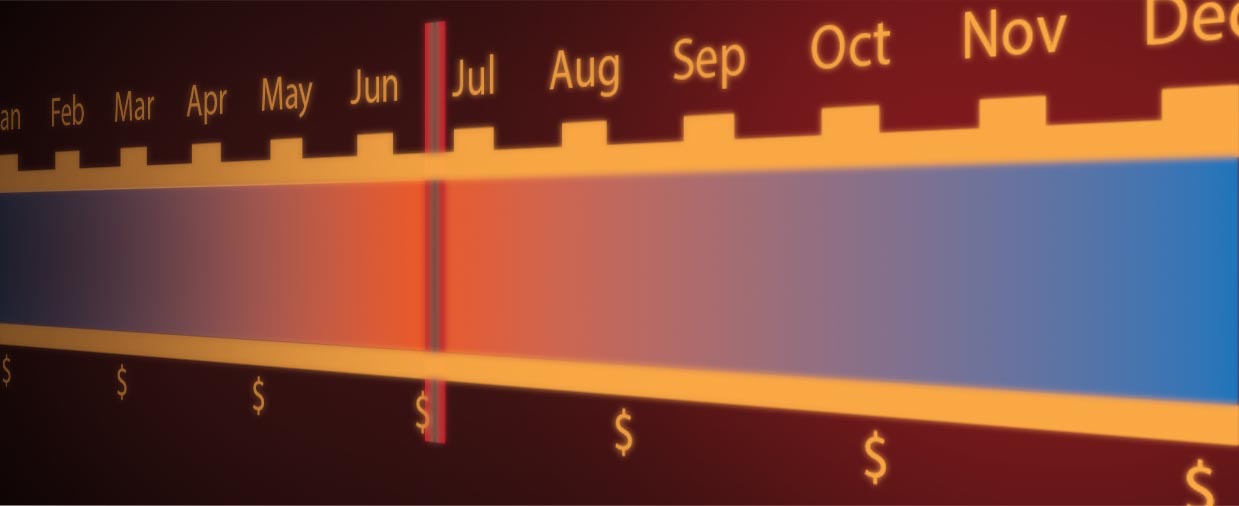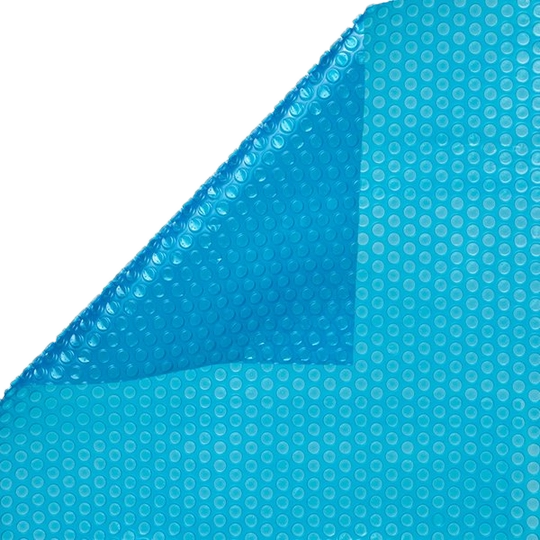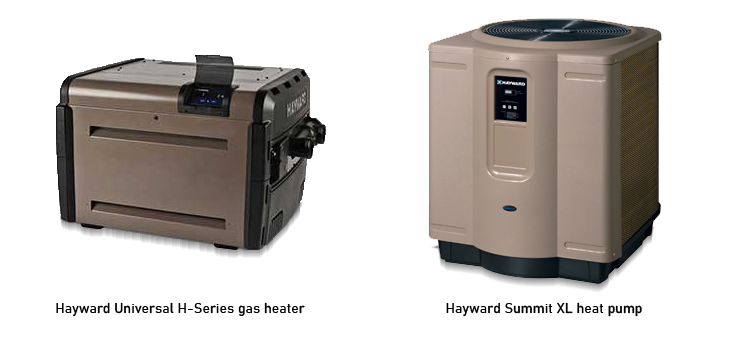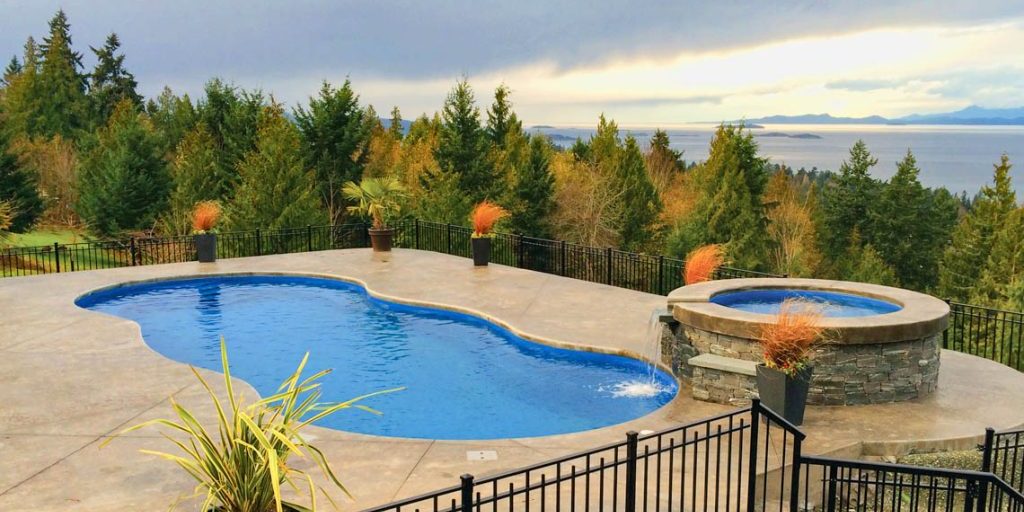On Pool Heaters
On Pool Heaters

Considering a pool heater to lengthen your pool season? Chances are you have some of the following questions:
How long does a pool heater extend the use of a pool?
Is it worth the cost?
What is the best type of pool heater: gas or heat pump?
Does the heater have to be installed during pool installation?
These are common questions we encounter from customers interested in heating their pool.
In brief, the answers to the first three depend largely on the variable of what it is that you want. So, here we prepare the balance for you as you weigh the options. The short answer to the last is no, but we’ll go more into that.
Extending your pool season

How long you keep your pool open throughout the year is ultimately a matter of personal preference. There are no rules on when to open or close your pool. That being said, in North Carolina a private unheated pool is often kept open around 5 months (May – September). How many weeks or months can you add to your pool season with a heater? It depends on how much money you are willing to spend, and which type of heater you buy.
But you may be wondering, assuming cost were no issue, is it even possible to heat a pool year round?
Here is one point where the gas heater and the heat pump distinguish themselves. A heat pump cannot effectively heat a pool when the air outside is less than 55° as the heat pump works by taking heat out of the surrounding air. The gas heater, of course, uses combustion to provide heat meaning it works independently of outside temperatures. So, on a freezing day a gas heater could still heat water, as it does for a hot tub, but could it heat a pool enough to swim in? The consensus online, yes.
“Unlike heat pump and solar pool heaters, gas pool heaters can maintain any desired temperature regardless of the weather or climate.” — The Department of Energy
However, the cost of heating a pool continually in cold weather with a gas heater is so high that many opt not to use it that way. For extreme temperatures a gas heater is often used for single use, i.e. the heater is turned up shortly before one wants to swim, and turned down immediately afterwards. Some do run the heater continually at a low temp just to keep the water from freezing.
Costs of heating a pool
To operate, a heat pump costs in the range of $50 to $100 per month.
A gas heater costs in the range of $300 to $500 per month to operate.
It must be pointed out that heat loss affects the cost of heating a pool. Thus, taking measures to prevent heat loss can drastically reduce the cost of heating.
The Department of Energy estimated the annual cost of heating a pool to 78° without a cover from April to October in the city of Atlanta to be $1704, whereas using a cover cut the cost during the same time, and at the same temp, down to $320. You can think of using a cover as like keeping your refrigerator closed.
For the purpose of retaining heat from the sun there is a cover made, known as a solar cover.

A solar cover works like a greenhouse to increase the temperature of a pool while preventing heat loss through evaporation. A solar cover by itself under the sun can increase the temperature of a pool by 15°. Used with a heater it can prevent up to 75% of lost heat. Note: liquid solar cover is also an option, though liquid solar cover cannot be used with a pool heater as running the pump to circulate water breaks the liquid sheet on the surface of the pool, defeating the purpose.
Swim University discusses things to consider when setting the temperature of your pool. (We are not endorsing or promoting Swim University.)
Gas Heater vs. Heat Pump

It is considered a matter of fact that a gas heater is more effective at heating a pool than is a heat pump in that it heats a pool in significantly less time and works independently of outside temperatures. These are its main advantages along with having a lower upfront cost than the heat pump (about 50%), but that doesn’t mean a gas heater is the best fit for you. As shown already, a heat pump is less expensive to operate, saving you money in the long run, and that isn’t its only advantage.
- Though the heat pump takes longer to heat a pool, it is the more energy efficient of the two and is seen as the better option if you want your pool to stay heated continually.
- The heat pump is the more environmentally friendly of the two as there is no combustion of fossil fuel taking place.
- Last but certainly not least, the Hayward heat pump can also be used to chill a pool when it is hot outside–something a gas heater cannot do.
Installing heater after pool
It is certainly possible to install a heater on a pool that is already in the ground with deck and furniture already laid out. One thing to consider though if you are thinking that holding off on a heater will help with payments: adding a heater later can cost more than including it with the installation of the pool. Once the pump for a pool is plumbed, adding a heater means undoing work that has already been done. Talk to your pool/heater installer about the difference in cost.
Things to note if you are going to purchase a heater on your own
- If you have a salt pool, make sure the heater is made for use with salt water.
- Size heater the heater to the pool. A heater that is too small defeats the purpose. The size also depends on the climate.
Do you still have questions?
Comment on the blog your questions.
Ready to start your backyard transformation?
Experienced, dedicated professionals waiting to turn your dream into reality!
We are a family owned and operated small business specializing in customized pools built with quality and care.
2 Comments
Leave a Reply Cancel Reply
Related Posts


Hello Michael
We are looking to add a heater, just need to look at our options.
Anyone can come out to the house anytime.
Thanks
Trevor Hogeland
Trevor, my dad, Ken, will have to talk to you about the heater to insure you get the right one. I did write the blog, but I’m not yet an expert. The best way to get on his calendar is to go to the ‘Get Started’ page on our website and fill out the form. I believe Cyndi has your contact info already, so just put your name, check the required boxes and say that you are interested in adding a heater.